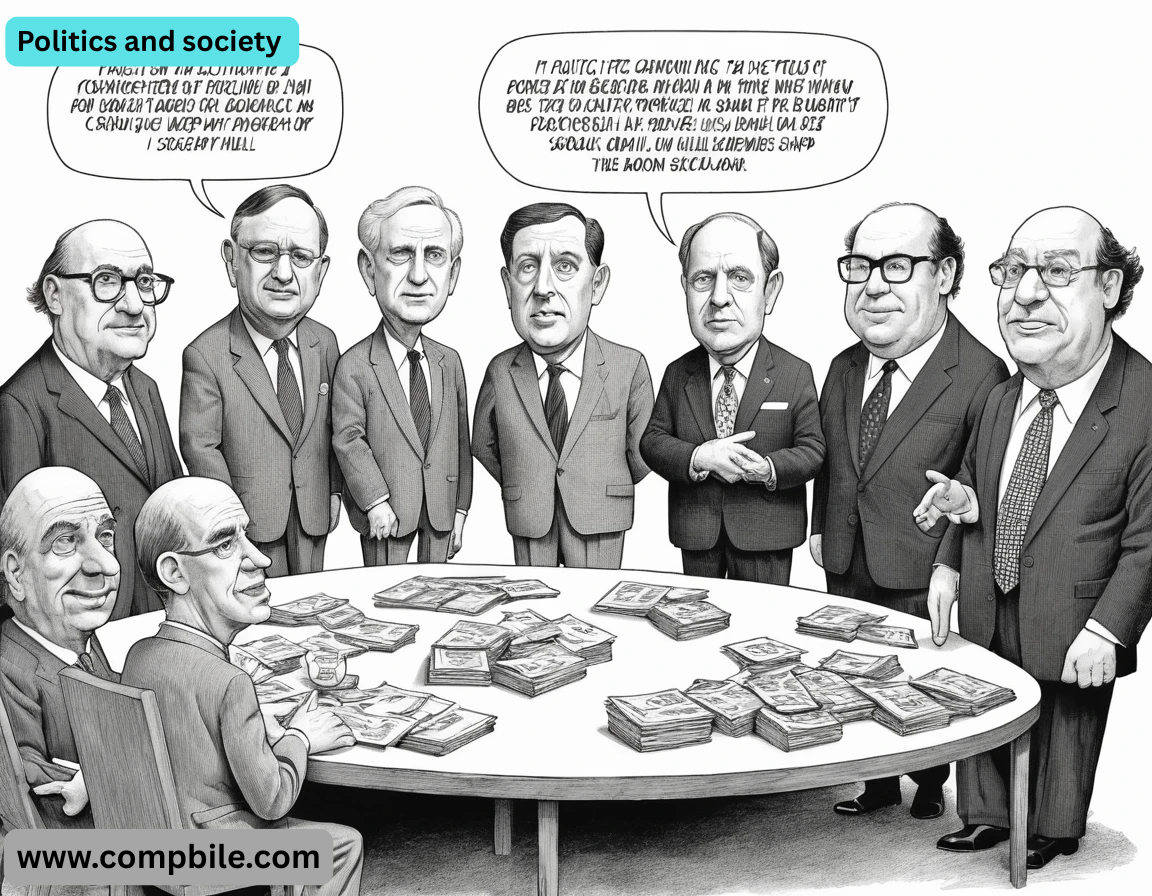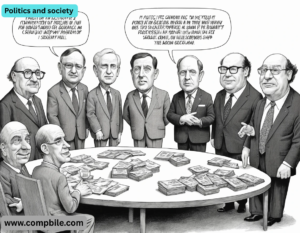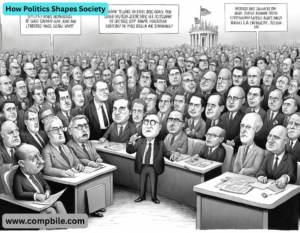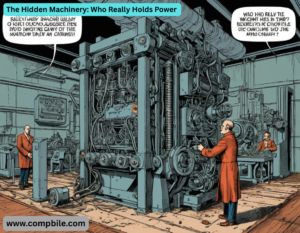Politics and society Politics and society are deeply interconnected, shaping how power is distributed, resources are allocated, and collective decisions are made. Here’s an overview of key aspects of their relationship:
Power and Governance
- Political Systems: Societies are governed by different systems (democracy, authoritarianism, communism, etc.), which determine who holds power and how it is exercised.
- State Institutions: Governments, legislatures, courts, and bureaucracies enforce laws and policies that regulate social behavior.
- Legitimacy: A government’s authority depends on societal acceptance, whether through elections, tradition, or coercion.
Social Structures and Inequality
- Class, Race, and Gender: Politics often reflects societal hierarchies, with marginalized groups struggling for representation and rights.
- Social Movements: Protests, activism (e.g., civil rights, feminism, climate justice) push for political change.
- Welfare and Redistribution: Policies like healthcare, education, and taxation address (or reinforce) social inequalities.
Ideologies and Beliefs
- Political Ideologies: Liberalism, conservatism, socialism, and nationalism shape societal values and policy debates.
- Media and Propaganda: Information dissemination influences public opinion and political behavior.
- Religion and Culture: Moral and cultural norms often drive political agendas (e.g., abortion laws, secularism).
Globalization and Transnational Issues
- International Relations: Trade, war, and diplomacy affect domestic societies.
- Migration and Identity: Political debates over immigration reflect societal fears about culture and economics.
- Climate Change: Global cooperation (or conflict) over environmental policies impacts societies worldwide.
Participation and Democracy
- Voting and Representation: Electoral systems determine whose voices are heard.
- Civil Society: NGOs, unions, and community groups hold governments accountable.
- Populism and Polarization: Growing divisions in societies influence political extremism and distrust in institutions.
Key Challenges Today
- Rising Authoritarianism: Erosion of democratic norms in some countries.
- Disinformation: Social media’s role in manipulating political discourse.
- Economic Inequality: Political systems struggling to address wealth gaps.
How Politics Shapes Society
- Politics determines the rules, institutions, and policies that govern daily life. Examples include:
- Laws & Rights: Legalizing same-sex marriage, abortion access, or free speech protections directly impact social norms.
- Economic Policies: Taxation, minimum wage, and welfare programs influence wealth distribution and class mobility.
- Education & Propaganda: National curricula shape historical narratives and civic values (e.g., patriotism vs. critical thinking).
- Surveillance & Control: Governments use policing, censorship, or mass surveillance (e.g., China’s Social Credit System) to enforce order.
Case Study: The New Deal (U.S., 1930s)
- FDR’s policies (Social Security, labor rights) reshaped American society by reducing poverty and expanding the middle class.
How Society Influences Politic
- Social values, movements, and conflicts drive political change:
- Grassroots Movements: Civil rights, #MeToo, and Black Lives Matter forced policy reforms.
- Public Opinion: Shifts in attitudes (e.g., climate change awareness) pressure leaders to act.
- Cultural Shifts: Secularization in Europe reduced church influence in politics.
- Technology & Social Media: Platforms like Twitter and TikTok fuel revolutions (Arab Spring) or insurrections (Jan. 6).
Case Study: Marriage Equality
- Decades of LGBTQ+ activism shifted public opinion, leading to Supreme Court rulings (e.g., Obergefell v. Hodges, 2015).
Key Conflicts in Politics & Society
A. Identity Politics
- Nationalism vs. Globalism: Tensions over immigration, sovereignty (Brexit, Trumpism).
- Race & Representation: Debates over affirmative action, colonial legacies (e.g., reparations).
- Gender & Power: Backlash against feminism (e.g., anti-abortion laws in the U.S.).
B. Capitalism vs. Social Welfare
- Neoliberalism: Privatization and deregulation (Reagan, Thatcher) vs. socialist pushes (Bernie Sanders).
- Gig Economy: Labor rights in an era of Uber and AI-driven job displacement.
C. Democracy in Crisis?
- Erosion of Trust: Declining faith in institutions (Congress, media).
- Populism: Leaders like Trump, Bolsonaro, or Modi exploit societal divisions.
- Disinformation: AI deepfakes and bots manipulate elections.
The Future of Politics & Society
- Emerging trends that will redefine the relationship:
- AI Governance: Who controls algorithms that shape public opinion?
- Climate Collapse: Will democracies or autocracies better handle mass migration and resource wars?
- Post-Work Societies: Universal Basic Income (UBI) if automation eliminates jobs?
- Digital Authoritarianism: China’s model vs. Western democratic ideals.
The Hidden Machinery: Who Really Holds Power
A. Beyond Governments: The Shadow Networks
- Plutocracy vs. Democracy: Wealthy elites (billionaires, corporate lobbies) often dictate policy more than voters. Example: The U.S.Citizens Unitedruling allowed unlimited dark money in politics.
- Deep State Conspiracies?: While exaggerated, bureaucratic inertia and unaccountable agencies (e.g., intelligence communities) do shape policies beyond electoral mandates.
- Global Power Brokers: The IMF, World Bank, and WEF (Davos) enforce economic policies on nations, often overriding local democracy.
Foucault’s “Biopower”
- Modern states control societies not just through laws, but by shaping bodies and minds:
- Surveillance Capitalism (Google, Meta) commodifies behavior to predict/manipulate politics.
The Psychological War: How Politics Hijacks the Brain
A. Tribal Politics & the “Culture War”
- Moral Foundations Theory (Haidt): Liberals (care/fairness) vs. conservatives (loyalty/authority/sanctity) are wired to clash.
- Outrage Algorithms: Social media rewards viral anger—polarization is profitable.
B. Language as a Weapon
- Orwellian Newspeak: Euphemisms (“collateral damage,” “right-sizing”) hide brutality.
C. The Rise of Apoliticism
- Gen Z’s Disillusionment: Many reject partisan politics as a rigged game, turning to direct action (climate strikes, mutual aid).
The Underground Economies That Shape Politics
A. The Black Markets
- Drug Cartels = Parallel States: In Mexico, cartels provide jobs, security, and bribes to officials—outsourcing governance.
- Cybercrime as Geopolitics: Russian ransomware gangs fund Kremlin ops; North Korean hackers steal crypto for nukes.
B. The Informal Majority
- Global Shadow Economy: 60% of workers are informal (street vendors, gig workers). They’re ignored by policy but drive real economies.
The Future is Already Here (But Unevenly Distributed)
A. Neo-Feudalism
- Tech Serfdom: Amazon warehouse towns, Uber drivers trapped by algorithms.
- Elite Escape Plans: Silicon Valley preppers buying bunkers, seasteading, or Mars colonies to flee collapse.
B. Post-Human Politics
- AI as Ruler: Could an algorithm govern better than corrupt humans? (See: Estonia’s digital governance.)
- Genetic Class Wars: CRISPR babies, longevity drugs for the rich—will biology split society into subspecies?
C. The New Revolutions
- Quiet Quitting the System: Mass tax strikes, #NoVote movements, or fully opting out (see: “The Network State”).
- Climate Guerrillas: Sabotaging pipelines, suing governments for ecocide.
Deep-Cut Theories to Explore
- Carl Schmitt’s “The Concept of the Political”: All politics reduces to friends vs. enemies.
- Debt as Control (David Graeber): How student loans, mortgages, and national debt enslave populations.
- The Dark Enlightenment: Neo-reactionaries who believe democracy is doomed; advocate for tech-backed monarchy.
The “Code” of Power: Invisible Rules That Govern Society
A. The Unwritten Constitution
- Every society has formal laws (the Constitution, statutes) and informal rules (norms, corruption, unwritten privileges).
- Example: In Russia, blat (personal networks) matter more than legal procedures.
- Example: In the U.S., lobbying and “access capitalism” override voter intent.




